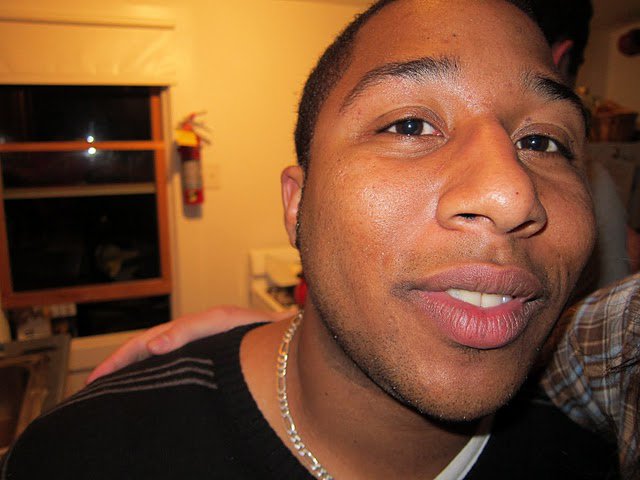First Novels, Indie Presses Make Booker Prize Longlist
The Man Booker Prize panel has announced its 2011 "Booker dozen," the semifinalists for the fifty-thousand-pound novel award (approximately eighty-two thousand dollars). Among the thirteen are four first-time novelists: Yvvette Edwards, whose A Cupboard Full of Coats (Oneworld) was more than twenty years in the making; Stephen Kelman for Pigeon English (Bloomsbury), which emerged from an agency slush pile and made its way into a bidding war; Patrick McGuinness, who has previously published two books of poetry, for The Last Hundred Days (Seren Books); and journalist and memoirist A. D. Miller for Snowdrops (Atlantic Books).
The other longlisted titles are The Sense of an Ending (Jonathan Cape) by thrice-shortlisted author Julian Barnes; On Canaan's Side (Faber and Faber) by Sebastian Barry; Jamrach's Menagerie by Carol Birch (Canongate Books); The Sisters Brothers (Granta Books) by Patrick deWitt; Half Blood Blues by Esi Edugyan (Serpent’s Tail); The Stranger's Child (Picador) by Alan Hollinghurst, who won the Booker in 2004; Far to Go (Headline Review) by Alison Pick; The Testament of Jessie Lamb (Sandstone Press) by Jane Rogers; and Derby Day (Chatto & Windus) by D. J. Taylor.
Members of U.K. publishing's Independent Alliance made a strong showing, with Canongate Books of Edinburgh and London-based Atlantic Books, Faber and Faber, Granta Books, and Serpent's Tail all represented on the longlist. Also flying the indie flag are Sandstone Press in the Scottish Highlands and Seren Books, the first Welsh publisher to have one of its titles considered for the Booker.
The judging panel, chaired by Stella Rimington, former director of British intelligence agency MI5, consists of novelist Susan Hill, journalists Matthew d'Ancona and Gaby Wood, and politician Chris Mullin. It took roughly two hours of "impassioned debate, but without any acrimony and with a great deal of humor," according to Rimington, for panelists to select this year's titles from one hundred thirty-eight under consideration.
The Booker shortlist will be announced on September 6, and the winner will be named on October 18. The annual award, considered one of the most prestigious for literature in English, is given to a citizen of the British Commonwealth, Ireland, or Zimbabwe.
The video below is a trailer for Kelman's Pigeon English. For further visual access to the semifinalists' works, the Guardian has the longlist in pictures.






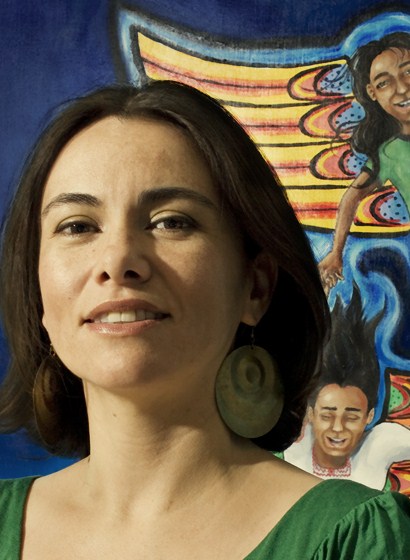 When
I was eight, my parents packed all five of us kids into an old, avocado-green
station wagon and drove us to Bakersfield
to pick onions. Once there, we toiled in the vicious heat, snapping enormous green
scissors, filling coarse brown sacks with dusty white onions. One foreman came by
every so often to halfheartedly shoo us kids off the field. Within minutes after
he disappeared, we’d run back to our parents to help with the onion picking or the
dragging of sacks that inevitably grew heavier with each added onion.
When
I was eight, my parents packed all five of us kids into an old, avocado-green
station wagon and drove us to Bakersfield
to pick onions. Once there, we toiled in the vicious heat, snapping enormous green
scissors, filling coarse brown sacks with dusty white onions. One foreman came by
every so often to halfheartedly shoo us kids off the field. Within minutes after
he disappeared, we’d run back to our parents to help with the onion picking or the
dragging of sacks that inevitably grew heavier with each added onion. 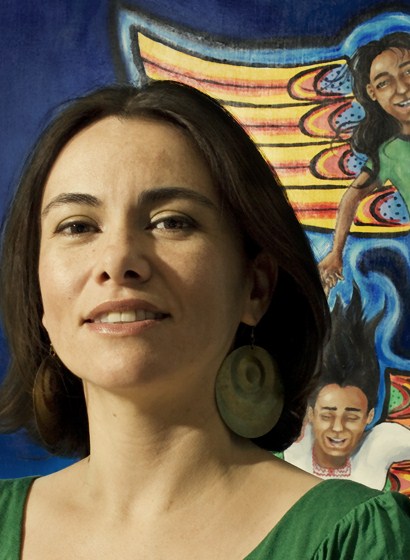 We gathered at
We gathered at 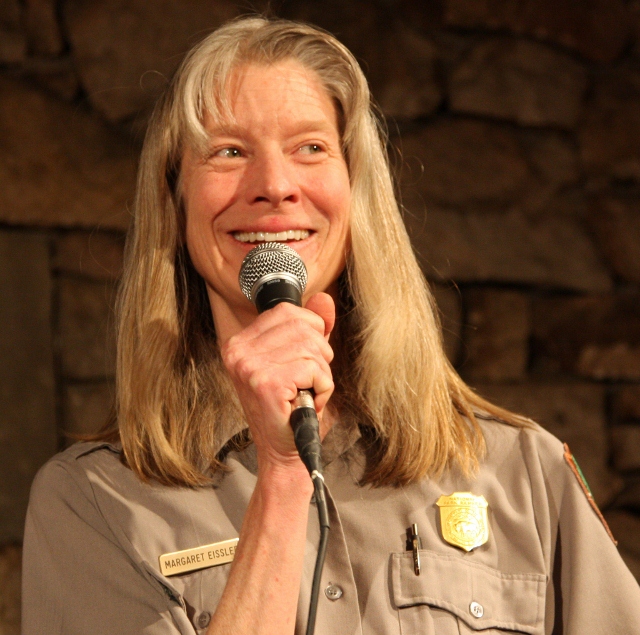 What makes your program unique?
What makes your program unique?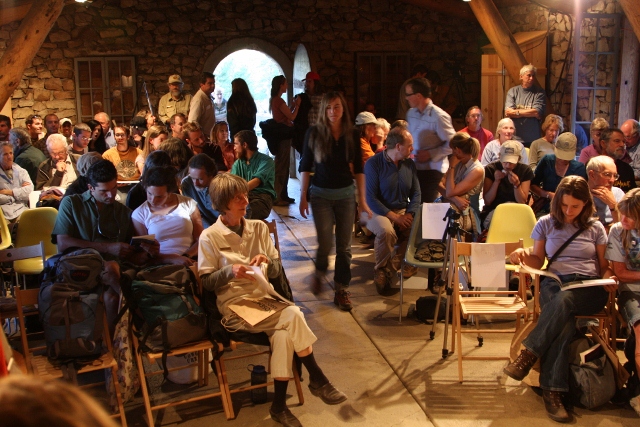 Gary Snyder reading his Yosemite trail crew poems within the building made of granite surrounded by the mountains and meadows he loves.
Gary Snyder reading his Yosemite trail crew poems within the building made of granite surrounded by the mountains and meadows he loves. 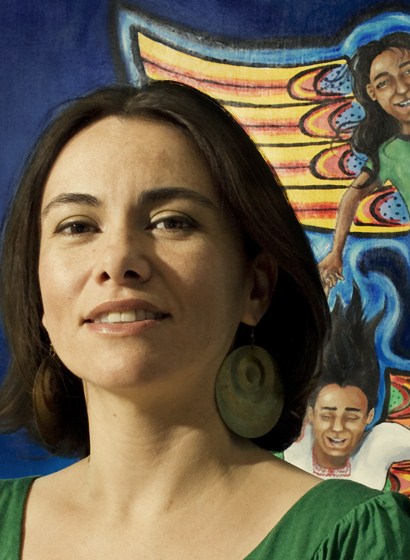 Imagine a stampede of thirty teenagers who gravitate towards
the altar, handling radishes and jalapeños, asking “Are we gonna eat these?”
One spiky-haired kid quickly falls in love with a coconut. “Can I have this?
Please!? Please!?”
Imagine a stampede of thirty teenagers who gravitate towards
the altar, handling radishes and jalapeños, asking “Are we gonna eat these?”
One spiky-haired kid quickly falls in love with a coconut. “Can I have this?
Please!? Please!?” 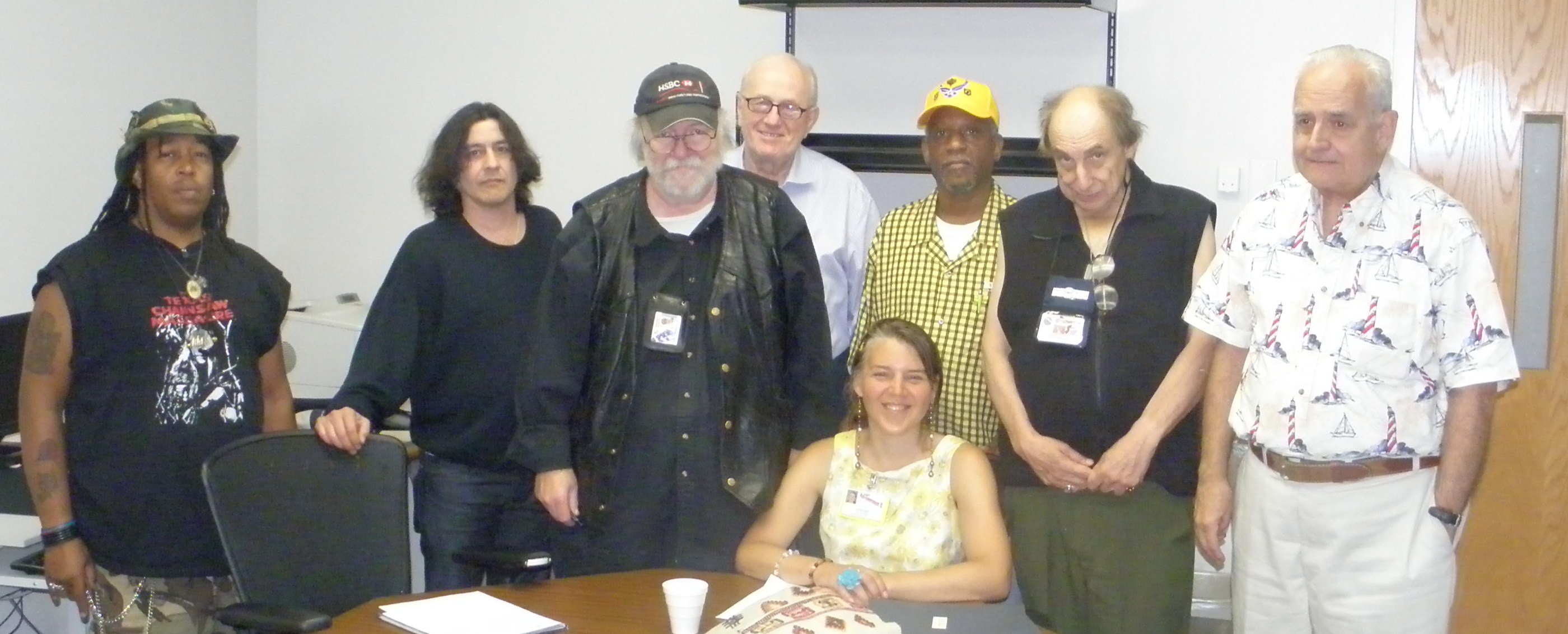
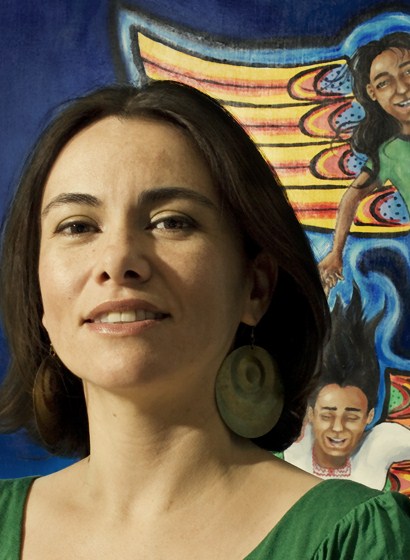 When it comes to border towns,
Calexico has it all: the U.S.-Mexico border you can walk up to, sniff,
stare at, curse, or cross; señores in sombreros and thick leather belts; big women
in church dresses, waving religious pamphlets in the air; a corner stop featuring
menudo, donuts, and border patrol agents. Sure, there’s a Starbucks, a few Walmarts,
but what tugs at me is the historic shopping district, the brick archways and
columns, the cement bus benches, and the discount stores.
When it comes to border towns,
Calexico has it all: the U.S.-Mexico border you can walk up to, sniff,
stare at, curse, or cross; señores in sombreros and thick leather belts; big women
in church dresses, waving religious pamphlets in the air; a corner stop featuring
menudo, donuts, and border patrol agents. Sure, there’s a Starbucks, a few Walmarts,
but what tugs at me is the historic shopping district, the brick archways and
columns, the cement bus benches, and the discount stores. 